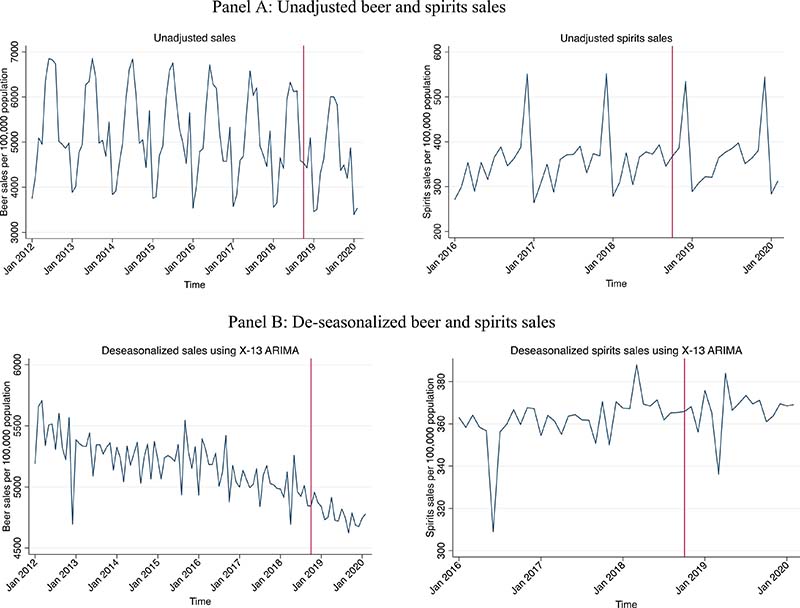A study of data published in the journal Drug and Alcohol Dependence has found that cannabis legalisation in Canada has led to a reduction in retail sales of beer.
Researchers examined alcohol retail data in Canada from 2012 to 2020 to understand the changes in the volume of beer and spirits sold after the legalisation of cannabis in October 2018.
The study found that beer sales dropped significantly shortly after legalisation, and have continued to drop since. The sales of spirts however have not been impacted.
“Canada-wide beer sales fell by 96 hectoliters per 100,000 population (p=0.011) immediately after non-medical cannabis legalization and by 4 hectoliters per 100,000 population (p>0.05) each month thereafter for an average monthly reduction of 136 hectoliters per 100,000 population (p<0.001) post-legalization. However, the legalization was associated with no change in spirits sales,” the authors report.

The authors propose that motivations for alcohol consumption may be a factor in the drop in beer consumption but not spirits. ”In Canada, over 40% of alcohol consumption occurs during weekdays with older adults particularly using alcohol as a means to unwind on a regular basis (instead of reserving it only for social occasions) Furthermore, 65% of consumption occurs alongside an everyday meal, while watching a game or during after work relaxation. Given that beer is generally less expensive and has lower alcohol content than spirits, beer may be preferred in these situations. At the same time, cannabis users report that they prefer to consume alcohol in public events while using cannabis at home “with their partners watching television” These patterns of use explain why beer may be more likely to be substituted with cannabis than spirits.”
The study also found that while kegged and canned beer sales showed a drop post-legalisation, bottled beer sales remained unaffected. One possible explanation given for this anomaly is that cans are the preferred method for at-home beer consumption, suggesting that legal cannabis is substituted for cans more so than bottles simply due to the widespread consumption of canned beers.
The authors note the limitations in the data, as consumption of other types of alcohol such as wine, cider and pre-mixed cocktails was not available. However, beer and spirit sales make up for around 60% of the alcohol market in Canada.
The results support other studies that show cannabis legalisation can reduce alcohol. A 2022 study published in the Journal of Adolescent Health found that the legalisation of cannabis leads to lower use of alcohol, cigarettes, and pain medications by young adults. In the UK alcohol continues to be one of the most widely abused drugs. The NHS reported 980,000 thousand estimated hospital admissions for alcohol-related reasons in England alone during 2018/19.
This story first appeared on leafie, view here
Author: Liam O’Dowd
